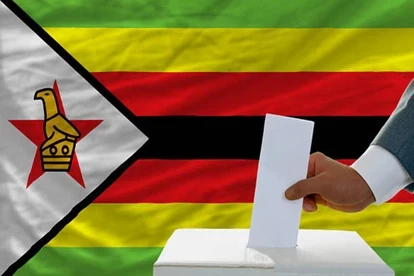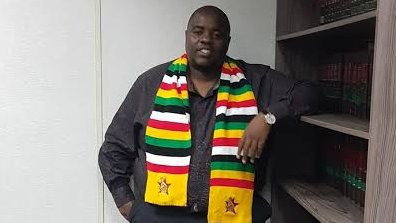
THERE is always a worrisome pattern that emerges particularly with each election.
Generally, our elections are very competitive in nature. Sometimes members of different political parties tend to approach one another with antagonism, hate language, disdain, ill-feelings, disaffection, sexual harassment and physical violence during an electoral cycle.
Homophily by political parties, ultimately leading to political violence, is in some cases motivated by politicians who sometimes think that the stakes are higher than our common humanity.
This opinion piece seeks to flash into the minds of followers of different political parties the understanding that elections are not bigger than their neighbourhoods and their attendant relationships because of their transient nature.
Human beings have diverse political, religious, cultural and social persuasions because by definition they are constituted differently.
Everyone sees and experiences the world differently and we spend much of our lives trying to understand our perceptions and the perceptions of others.
The diversity characterising humanity permeates every facet of life and as such it would be folly to expect finding human beings who think, behave and act the same.
The only thing that is normal under the sun is the paradigm of difference.
- ED heads for Marange
- ‘Zimbos dreading 2023 elections’
- Your Excellency, the buck stops with you
- We’ll unleash our dogs: Zanu PF
Keep Reading
The differences between and among human beings should therefore not create a fertile climate for animus, but rather it should be conducive to promoting amity between and among members of the same neighbourhood.
It is every human being’s inalienable right to identify with a political party of his or her own choice.
An attack on an alternative voice is indeed an attack on humanity because humanity is heterogenous in outlook.
As people live within their communities they should be guided by the psyche of humanity and should always remain focused in their thinking and not be swayed by politicians who sometimes think that life begins and ends with their political interests.
As citizens, the most important thing that should be borne in mind during electoral seasons is that elections come and go and that your neighbours will always be there.
Zimbabwe boasts educated people, but sometimes one tends to question the sanity of the so-called educated people when they dehumanise one another because of political differences.
Zimbabweans should stop thinking with their stomachs in times of elections, rather they should use their feet to think.
Thinking with one’s stomach implies seeing things in terms of one’s immediate physiological needs while thinking with one’s feet connotes perceiving what is before oneself with a sense of direction that the country is taking.
To think with one’s stomach is akin to leaving one’s field unattended going to attend a wedding, leaving the field at the mercy of the baboons.
In your communities do not allow politicians to set you up against your neighbours because of the differences that you may have politically, culturally, ethnically, linguistically, socially and religiously.
The common denominator between and among human beings is our common humanity.
As we interact with one another as Zimbabweans, let us not think at random as a people but rather be focused in our thinking.
Focused thinking as Zimbabweans entails shared and possibility thinking as a people.
Shared and possibility thinking is anchored on using our education as politicians and members of different political parties not only to read or write but also to humanise our communities.
It is despicable to hurt or kill your neighbour just because he or she thinks as if there is no box in terms of what best can take Zimbabwe to another level in terms of development with widespread growth for every citizen.
As we interact, let us know that political, economic and social circumstances change and as they shift we should always find one another as citizens.
As these circumstances change there is a social pendulum and those with institutional power may find themselves as everyday people and some of the everyday people may find themselves within the corridors of power.
To that effect, value systems, normative practices and principles should mark and punctuate our interaction.
Every Zimbabwean is at liberty to follow a political party of his or her own choice because as a citizen he or she is spoiled for choice in terms of taste.
To that effect, laws that are crafted should be pregnant enough to create, embrace and enhance political participation without necessarily creating political operational silos or impediments.
Every Zimbabwean should be his or her neighbour’s keeper and should avoid antagonising himself or herself with his or her neighbour because of heterophily by politics.
Let respect and human dignity provide the compass for the interaction of citizens during election times.
Let the law be fair and protect all and sundry during the 2023 electoral season. We only have one country as Zimbabweans and to that effect we all have a duty and obligation to be one another’s keeper.
As the 2023 harmonised elections beckon, let us know that there is always life after the elections.
Do not bury the future of your neighbourhood with the harmonised elections which are ephemeral in outlook.
Political leaders will always accommodate each other or find one another other through peace brokering initiatives and end up drinking tea together, something that will be hard for you to do with an aggrieved neighbour who you would have maimed because of pernicious political polarisation.
While the competitive nature of politics is normal, let us not sacrifice common humanity on the altar of politics.
Political leaders must preach the gospel of peace and tolerance to their followers and also show collective willingness to agree to disagree with their political competitors, but still treat each other as co-nationals with a common past and future, because we are all Zimbabweans.








